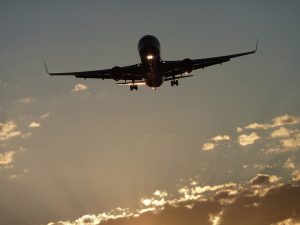 Boeing has announced plans to produce hypersonic jets for commercial air travel, with a target date of 2020 to 2030.
Boeing has announced plans to produce hypersonic jets for commercial air travel, with a target date of 2020 to 2030.
Earlier this year, the U.S. Defense Advanced Research Projects Agency (DARPA) selected Boeing to design and construct its Experimental Spaceplane (XS-1), which involves the use of a reusable space plane. What’s truly remarkable about the XS-1, however, is its ability to reach hypersonic speeds. It features cryogenic propellant tanks, composite-metal structures, and it’s able to withstand heat of 2,000 degrees Fahrenheit.
“The XS-1 would be neither a traditional airplane nor a conventional launch vehicle but rather a combination of the two, with the goal of lowering launch costs by a factor of ten and replacing today’s frustratingly long wait time with launch on demand,” DARPA program manager Jess Sponable said in a press release. “We’re very pleased with Boeing’s progress on the XS-1 through Phase 1 of the program and look forward to continuing our close collaboration in this newly funded progression to Phases 2 and 3 — fabrication and flight.”
According to a recent report by CNBC, however, Boeing is also looking to produce hypersonic jets for commercial flights, presumably using similar technology. Dennis Muilenburg, CEO of Boeing, explained that his company is working on hypersonic jets that could be used in commercial flight travel within the next two decades. Assuming the project is successful, the jets could achieve speeds of 3,800 mph. To put that number into perspective, most passenger jets currently fly at speeds of 500 mph — a substantial difference from any perspective.
With such fast speeds, a hypersonic jet could transport travelers from New York to China in just two hours. Of course, it wouldn’t be practical for all travelers, and airlines that use hypersonic jets would likely charge a hefty premium for the service. Nonetheless, Boeing is taking the initial steps towards making hypersonic air travel a reality. It’s already teamed up with DARPA for the XS-1 project, and Beoing has a team working on the commercial variant.
Some analysts are skeptical of Boeing’s vision of hypersonic commercial flight, comparing it to the Concorde. Several commercial airlines, including British Airways and Air France, offered supersonic flights via the Concorde for more than 30 years, during which they failed to turn a profit. Whether or not the same fate holds true for Boeing’s hypersonic jet remains to be seen. However, experts say there’s a newfound interest in super-fast air travel, and this could help Boeing’s bold vision.



